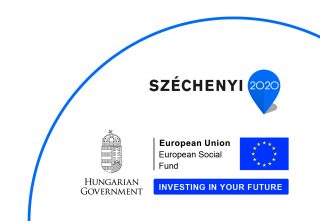Details of the application:
Project code: EFOP-3.6.1-16-2016-00024
Project title: ‘Developments for smart specialisation in cooperation between the University of Veterinary Medicine and the Faculty of Agriculture and Food Sciences of Széchenyi István University’
Beneficiary: University of Veterinary Medicine
Consortium partner: Széchenyi István University
The project is implemented by four departments of the University of Veterinary Medicine:
1. Department of Animal Hygiene, Herd Health and Mobile Clinic
2. Department of Anatomy and Histology
3. Department of Pharmacology and Toxicology
4. Department of Forensic Veterinary Medicine, Law and Economics
The Faculty of Agriculture and Food Sciences participates on behalf of the consortium partner.
Duration: 01. May 2017 – 31. October 2021.
Aid amount: HUF 391 113 186,- Rate of aid: 100%
Place of implementation: the primary location is the ÁTE Mosonmagyaróvár site, located in the building of the Hungarian Dairy Experimental Institute.
Research topics:
The University of Veterinary Sciences will develop its research activities in the framework of the present project around 2 research themes:
Sub-theme 1: Development of farm animal probiotics – basic research
Sub-theme 2: Investigation and analysis of the epidemiological, herd health, quality and hygiene characteristics of cow’s milk production as a raw material for food production, with particular reference to micro-organisms posing risks to public health, animal health and food safety – applied research
The Faculty of Agriculture and Food Sciences of the Széchenyi István University plans to implement the following research programme in order to increase the supply of researchers:
Sub-theme 3: Investigation and analysis of the quality and hygiene characteristics of the processing of cow’s milk as a food raw material in the food industry, with special emphasis on microorganisms posing food safety risks – applied research
Expected results:
The nature of the research, in addition to the involvement of young researchers and faculty members, contributes to the involvement of a large number of veterinary, biological and food students in research (thesis, TDK, and PhD) and practical training, playing an important role in ensuring the supply of researchers to the Faculty of Agriculture and Food Sciences of the University of Szeged and the region of Western Transdanubia. The internationally publishable results expected from the research will further enhance the publication performance of the universities concerned.
Direct target group: higher education students, higher education teachers and researchers, non-teaching, non-research staff in higher education, and professionals in corporate research centres
Indirect target group: Organisations involved in building the knowledge triangle (chambers of commerce, business research centres and business organisations), consumers (to whom research in the dairy sector will be presented at awareness-raising events to increase confidence and consumption of milk), cow farmers, agri-business operators and food chain safety authority decision-makers, who will benefit from the published results of the research to help them implement competitive and safe dairy practices, identify production opportunities and avoid risks.

